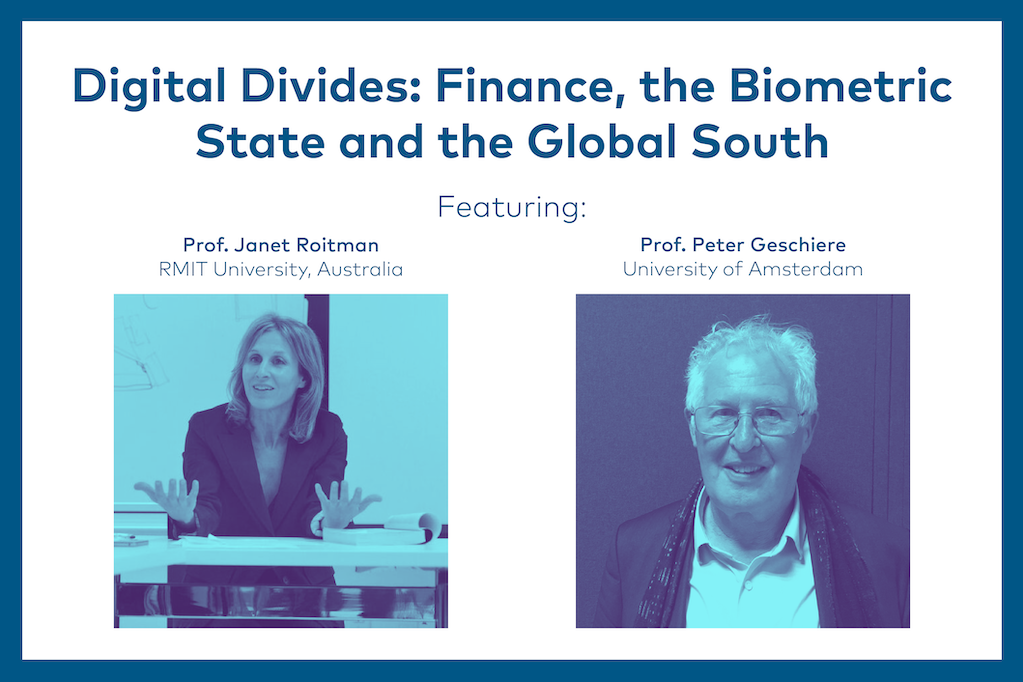Digital Divides: Finance, the Biometric State and the Global South

Prof Janet Roitman, RMIT University, Australia
"Finance and the Global South"
Platform economies are depicted as the foundation of a new era of economic production. However, different assumptions are made about the effects of digital platforms depending on geographic location. While digital platforms are approached as inherent to processes of financialization globally, they are often reduced to processes of 'financial inclusion' when referencing the global South. Analyses of financialization as a one-way-vector-global North to global South-overlook variability and responses to financialization. For instance, a nexus of telecommunication operators, mobile money issuers, and commercial banks in Africa generates instances of both value subjugation and autonomization, evidence that the fault lines of value production are obscured by a North/South frame.
Prof Peter Geschiere, University of Amsterdam
"Witchcraft Logics and the Biometric State in Africa"
Since the turn of the 21st century the World Bank has enthusiastically propagated biometric identification as a solution to development travails in the global South. The idea is that biometrics-machines that identify bodies-can work without any social mediation and thus can evacuate corruption. Moreover, with the rapid spread of cell phones in the South, biometric identifiers open new possibilities for those who are non-literate. Some anthropologists remain skeptical about the real effects of this 'biometric cargo cult'. Moreover, how does biometric identity relate to the resilience of ideas of witchcraft in many parts of the continent? Basic to witchcraft imaginaries is a vision of the person as double and shape-shifting. Such ideas were creatively generative within the framework imposed by the 'documentary' state (where the production of 'false' papers and double identities abounded). Will the 'biometric state' be more successful in overcoming such pluri-formity?






